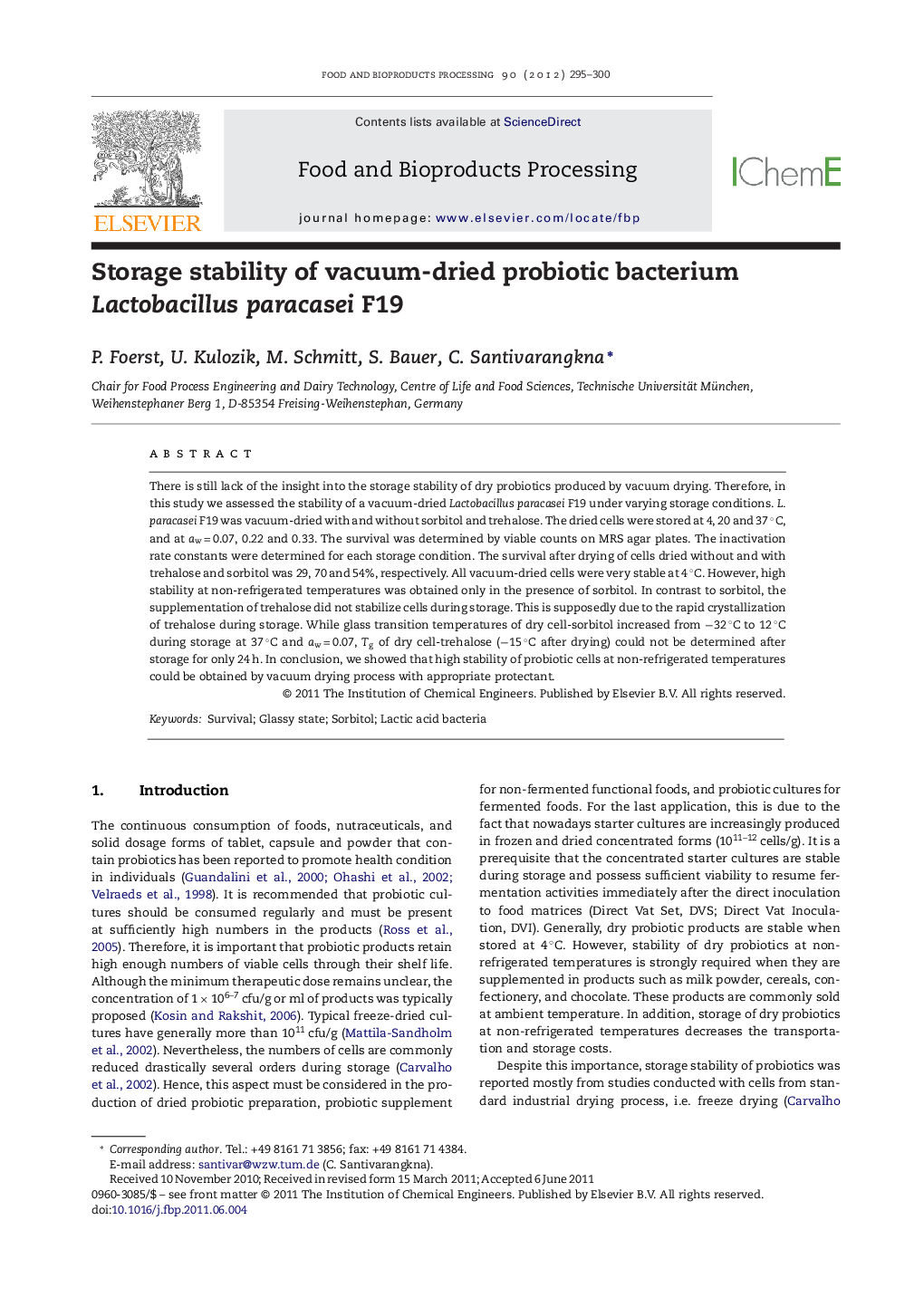| Article ID | Journal | Published Year | Pages | File Type |
|---|---|---|---|---|
| 19337 | Food and Bioproducts Processing | 2012 | 6 Pages |
There is still lack of the insight into the storage stability of dry probiotics produced by vacuum drying. Therefore, in this study we assessed the stability of a vacuum-dried Lactobacillus paracasei F19 under varying storage conditions. L. paracasei F19 was vacuum-dried with and without sorbitol and trehalose. The dried cells were stored at 4, 20 and 37 °C, and at aw = 0.07, 0.22 and 0.33. The survival was determined by viable counts on MRS agar plates. The inactivation rate constants were determined for each storage condition. The survival after drying of cells dried without and with trehalose and sorbitol was 29, 70 and 54%, respectively. All vacuum-dried cells were very stable at 4 °C. However, high stability at non-refrigerated temperatures was obtained only in the presence of sorbitol. In contrast to sorbitol, the supplementation of trehalose did not stabilize cells during storage. This is supposedly due to the rapid crystallization of trehalose during storage. While glass transition temperatures of dry cell-sorbitol increased from −32 °C to 12 °C during storage at 37 °C and aw = 0.07, Tg of dry cell-trehalose (−15 °C after drying) could not be determined after storage for only 24 h. In conclusion, we showed that high stability of probiotic cells at non-refrigerated temperatures could be obtained by vacuum drying process with appropriate protectant.
► In this study we examine the storage stability of a vacuum-dried probiotic. ► Sorbitol can improve storage stability of the vacuum-dried cells. ► Vacuum-dried cells show much higher stabilities than the freeze-dried cells.
